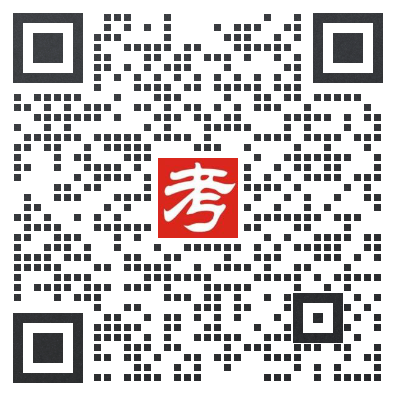Text 1
Flying over a desert area in an airplane, two scientists looked down with trained eyes at treesand bushes. After an hour' s flight, one of the scientists wrote in his book, "Look here for probable metal. " Scientists in another airplane, flying over a mountain area, sent a message to other scientists on the ground, "Gold possible. " Walking across hilly ground, four scientists reported,"This ground should be searched for metal. " From an airplane over a hilly wasteland a scientistsent back by radio one word: "Uranium. "
None of the scientists had X-ray eyes: they had no magic power of looking down below theearth' s surface. They were merely putting to use one of the newest methods of locating minerals inthe ground... trees and plants as signs that certain minerals may lie beneath the ground on whichthe trees and plants are growing.
This newest method of searching for minerals is based on the fact that minerals deep in theearth may affect the kind of bushes and trees that grow in the surface.
At Watson Bar Greek, a brook(小溪) six thousand feet high in the mountains of British Columbia, Canada, a mineral search group gathered bags of tree seeds. Boxes were filled with smallbranches from the trees. Roots were dug and put into boxes. Each bag and box was carefullymarked. In a scientific laboratory, the parts of the forest trees were burned to ashes and tested.Each small part was examined to learn whether there were minerals in it.
Study of the roots, branches, and seeds showed no silver. But there were small amounts ofgold in the roots and a little less gold in the branches and seeds. The seeds growing nearest to thetree trunks had more gold than those growing on the ends of the branches.
26. Scientists were flying over a desert or a hilly wasteland or .a mountain area in order tosearch forin the ground.
A. gold
B. silver
C. uraniumD. minerals
27. The study of trees, branches and roots shows that
A. there were larger amounts of gold in the branches than in the seeds
B. there were smaller amounts of gold in the roots than in the branches
C. there were less amounts of gold in the seeds growing on the ends of branches than seeds growing nearest to the tree trunks
D. there was more gold in the branches than in the roots
28. Which is the best title suggested below?
A. Scientists Searching for Metals with Special Power
B. New Methods of Searching for Minerals
C. Gold Could Be Found by Trees and Plants
D. A New Method of Searching for Minerals--Using Trees and Plants
29. Which of the following is NOT mentioned as part of a tree that can help find minerals?
A. Leaves.
B. Roots.
C. Branches.
D. Seeds.
30. The scientists were searching for minerals by using
A. X-ray
B. magic power
C. a special instrument
D. trained eyes
参考译文
坐着飞机飞过一片沙漠之地,两位科学家用训练有素的眼睛察看下面的树木和灌木丛。经过大致一小时的飞行观察后,其中一位科学家在他的本子上写下这样一句话“看这里可能有金属矿藏。”另一架飞机上的科学家们正飞过一座山区。他们给地面观察站的科学家们发了“可能有金矿”的信息。步行越过山地,四名科学家得出报告:“应该在此地寻找金属矿藏”。从飞过多山丘的荒原的飞机上,一位科学家用无线电发回一个字:“铀”。
没有一个科学家具有x射线那样的眼睛:他们并没有看透地球表面的魔力。他们仅仅使用了一个最新的技术来定位地下的矿藏…树木和植被长在地上,通过他们能显示出某种埋藏在地下的矿物。
这项最新的寻找矿藏的技术是依据这样一个事实,即处在地下的矿物会影响到地面上灌木和树木的生长。
沃森巴溪是加拿大英属哥伦比亚一座6,000英尺的山上的一条小溪。一队矿藏搜索小组收集了许多包树木的种子;盒子里盛满了小树枝。树根也被挖掉放进盒子里。每个包和盒子都被仔细标记了。在科学实验室内,树枝被烧成灰然后做检测。检查每个细小的部分是否含有矿藏。
对树根、树枝和种子的检测并没发现银元素,但却在树根部发现了部分金元素,同时在树枝和种子中也发现了较少的金元素。长在最接近树干上的种子要比长在树枝根部的种子含金元素多一些。
答案及解析
26.D【解析】语义理解题。根据文章第一段的内容提到各种金属,而这些金属元素是包含在矿(mineral)里的。故本题选择D。
27.c【解析】细节题。从文中最后一句“The seeds growing nearest to the tree trunks had more gold than those growing on the ends of the branches.”(长在最接近树干上的种子比长在树枝根部的种子要含有更多的金元素)可知答案。故本题选择c。
28.D【解析】主旨题。通读全文可知文章的大部分(第二至五段)都在讲述通过植物来寻找矿藏。故本题选择D。
29.A【解析】细节题。从最后一段可知,通过研究roots,branches和 seeds可判定地下是否有矿产,而leaves在文章中却没有提到。故本题选择A。
30.D【解析】细节题。从文章第一段的第一句“two scientists looked down with trained eyes at trees and bushes”(两位科学家用受过训练的眼睛观察树木和灌木)可知答案。故本题选择D。
考无忧推荐:
更多公共英语三级考试资讯在这里>>>公共英语三级考试
免费试用全国英语等级考试题库,想考公共英语三级?考无忧助你一臂之力>>>公共英语三级考试题库




